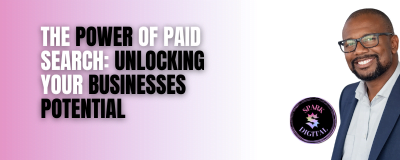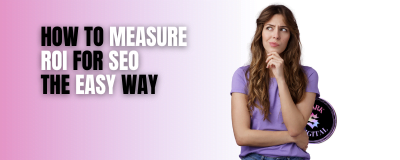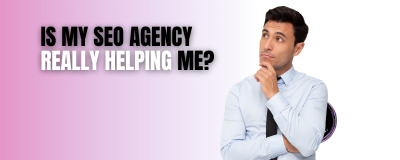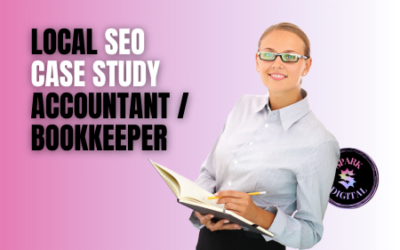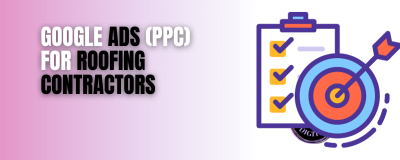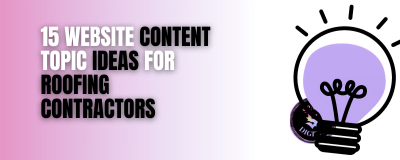The pressure for businesses to succeed has never been greater than now.
Recent times have seen the world gripped by the COVID Pandemic. This was followed up in short fashion by the daily documented war in Ukraine, which in itself has had a destabilizing effect on many things. Not least, Oil, Gas and Food prices.
Inflation is rising and earnings just aren’t keeping up.
Yes, governments have tried to intervene. Exerting pressure to prop up local economies, but the reality is that things are tough right now. Really tough.
The forward thinking business owners are already marketing the s*** out of things. But that doesn’t mean you can’t succeed as well.
And when it comes to gaining more new business there are 2 extremely effective ways at leveraging this marketing.
This post will take a deep dive into whether SEO is better than PPC for delivering results. And by results we mean new business, and by new business we mean more profit.
Read on as we will highlight the differences between each platform to help you to understand which could be a better fit for your business.
What Is SEO?
SEO or its long form name of search engine optimisation is a process. Albeit it is a complex process at that!
Putting it simply, when you do SEO you are (hopefully) making it easier for the search engines, Google et al to be able to understand your web pages.
A variety of strategies and different techniques are utlised. These include; search term research, on-page optimisation, content, internal linking and link-building.
The rationale behind all of these activities is to elevate your website to the top positions of the search engines ranking pages (SERP’s) for the given terms that your business targets.
When the goal is achieved your potential new customers are able to see your business when they search for the products and services they need.
More Meat On The SEO Bone
Okay, so we’ve talked about SEO being a complex process. Here’s a bit more info about it.
It starts off by analyising the search terms that fit with your target customers.
Here you are trying to understand the different queries that users would likely use when they need the products and services that your business provides.
Sadly many website owners (and indeed SEO agencies) don’t spend enough time on this all-important area. Assuming, they already know the data and how their potential new customers intend to find the services they offer.
Once the search terms are understood then they are ‘incorporated’ into the strategy for the website.
Implementation via meta tags and content is an effective way to help Google to understand what you want your pages to be understood for. This element is known as on-page-optmisation, because the updates you are making relate to the specific pages of your site.
The core purpose here is to make your pages ‘search engine friendly’. And, by doing this Google is more likely to want to show them higher in the search results.
Other aspects which fall under the umbrella of SEO include:
- Loading speed
- Mobile friendly
- Link building
When you wrap up all of the above, with a good sprinkle of ‘magic sauce’ you can see positive results. Which overtime means that your site’s pages are now much more visible for the people who are explicitly searching for your products and services.
Please note: We use the reference of ‘magic sauce’ as the significant experience that we have had over the years in delivering results for our clients. Not all agencies have the same quality of this sauce available, in-fact some versions on it can leave a very nasty aftertaste!

The Core Benefits of SEO
For all the people that push-back against the virtues of SEO, it cannot be denied that it still remains the #1 de facto method of delivering trust to your website.
You see, one of the fundamental reasons why a person will choose to do business with someone else is born around the trust aspect.
We aren’t saying that price, availability and convenience no longer matter, but trust is the glue that holds most transactions together.
Having your website positioned high up in Google’s listings means that the search engine giant already trusts your site. It trusts it on the basis that it is relevant and has authority over the subject matter.
So when potential buyers search and subsequently find your website they feel more comfortable in sending their enquiry, or booking their slot, or indeed whatever form of action you need them to take.
People often refer to this traffic as being free.
To be honest, it depends how you view things. As you won’t get top position rankings unless there is sufficient resource gone into it to get there. On the other hand, you aren’t having to pay for each website visitor that you gain.
As we said, it depends on your viewpoint.
So gaining large amounts of trust, combined with being highly visible is definitely a big plus point for the benefits of SEO.
Main Drawbacks of SEO
When it comes to SEO, one of the main challenges that is faced is one of time. Unlike PPC that can drive almost instantaneous traffic to your website, SEO takes time to bed in.
The reality is that you are ‘educating’ Google on the relevance of your pages. This can’t be done overnight.
SEO must be viewed as a long term investment in your business. One that requires patience, combined with a consistent effort.
Improvements can be seen, but these are measured in weeks and months, rather than hours and days.
Another potential drawback of search engine optimisation is that Google is forever changing the rules. Algorithms are being updated on a continual basis, which means that what works today may not be flavour of the month tomorrow.
To keep ahead of the SEO curve you need to be prepared to adapt your strategies to keep up with these changes.
What is PPC?
PPC is an acronym of Pay-Per-Click, which references a form of paid advertising.
Put simply, a business will agree to pay each time a user clicks on one of their advertisements.
Depending on the platform used these adverts are typically displayed on search results pages or other websites that are affiliated to the search engine.
The single most popular form of PPC advertising is that of Google Ads, but it should be noted that there are many other platforms available. Including social media and other search engines.

More About PPC
All PPC marketing works via some form of bidding system. Advertisers decide on the keywords that they want their products and services to be shown for and set a maximum bid.
Users that carry out searches that are connected to these keywords trigger an auction. At this point the advertising platform will then decide (based on a number of factors) which advertiser(s) they are going to show.
Pay Per Click ads can also be shown on partner websites. This is through what is referred to as display advertising. The advertising business can select which type of websites they want their ads to be shown. Paying each time that there is a click on their ad.

Common PPC Platforms
Google Ads
Google Ads are seen in pretty much any and every single search.
These are the text based ads that occupy (up to) 4 posititions at the top of your screen when you search.
You can also see Google ads when you visit websites, this time they are usually image based ads.
YouTube Ads
The most common ad on this platform is the one before you get to see your chosen video.
These in-play advertisements are hugely effective as there is no way to skip the first chunk of this advert.
Other methods of YouTube advertising comes in the form of ads shown within the search area.
LinkedIn Ads
Another platform that can produce excellent results for its advertisers.
The LinkedIn platform can show your ads to highly targeted users, based on a detailed criteria.
Facebook Ads
Facebook is an excellent platform for reaching people that have an interest in your products or services.
Demographics are matched and ads can be shown in a variety of different ways, with the most common one being on a persons timeline.
Core Benefits of PPC
Being able to drive almost immediate traffic to your website is probably the most important benefit of PPC. Particularly useful if you are a brand new business, with no Google organic ranking positions.
PPC is quick to set up and can target ‘ready to spend’ customers extremely quickly. What’s more you are able to make decisions based around your customers location amongst a wealth of other targeting options.
Running PPC ads allows your business to reach your desired audience, channeling different demographics as you see fit.
All of the above can assist with improving the overall effectiveness of your advertising, ultimately increasing the chances of conversions.
Main Negatives of PPC
PPC does have some drawbacks.
It should be noted that in pretty much every single niche there is going to be plenty of competition. This means that cost per click (CPC) can be expensive for the most competitive of keywords.
Businesses with smaller budgets may struggle to make the impact that they are looking to.
In addition, PPC or rather a properly structured PPC campaign has many different facets. The platforms such as Google make it easy to get started, but not so easy to master.
You need to be prepared to invest significant amounts of time and effort to fully understand the way your specific platform works. Failing to do so is almost certainly going to leave you producing a less than desired result.
It should be remembered that PPC is never a ‘set and forget’ product.
Your competition is changing on an almost daily basis, with new ones joining all the time. This means that you need to almost live and breathe with your PPC account to get the best out of it.
A final negative to PPC is that once you stop it has no residual value. In the same way as other paid advertising, once you stop paying your ad stops showing.

SEO vs PPC: Is One Better for Your Business?
We’ve looked at the pros and cons of SEO & PPC. Let’s take a closer look at which of these strategies might be more suitable for your own business.
What Are Your Goals?
We all want fast results, that’s a given.
But if you are a business owner that really does need immediate results then PPC is likely to be of value to you.
However, if you are seeking a sustainable, longer term result then SEO could well deliver.
You see, in pretty much every case it just comes down to the timing of results that will determine your main focus.
Importance Of Budget
We mentioned earlier that PPC can sometimes seem expensive. Well it’s true, especially in the case of highly competitive niches with lots of advertisers.
Gaining traction on the most valuable of keywords with a smaller budget can really be hard to achieve.
That said, there are generally ways to leverage some of the lesser used search terms to your own advantage, which often results in an improved ROI.
If you have a more modest budget then SEO might be a good way to get the gains you need. Provided of course you are willing to spend it on a regular basis.
Targeting Your Ideal Audience
Understanding your target audience is of utmost importance when it comes to making the decision of SEO or PPC.
When you run a paid ads campaign you are in control around the choices made in terms of who gets to see your ad. This can be of benefit if you have a niche type audience, or when targeting a specific geo location.
If your targets are more generalised then SEO might be the better marketing strategy for your business.
The Industry and Competition Question
We all operate in an industry or similar. Often referred to as a niche.
Some of these niches are more saturated than others, making it tough to stand out.
If you operate in a highly competitive niche then it will be harder to rank organically. Things will take longer and you need to be better at what you do.
When there is less competition SEO results tend to come quicker.
Worth bearing in mind when you make the decision on which strategy you are going to invoke.
Measuring ROI for SEO vs PPC
The success of any marketing initiative revolves around understanding your return on investment (ROI).
When it comes to SEO vs PPC the same is true.
Being in a position to understand what is working, and equally what isn’t going as planned is key here.
For SEO
Putting mechanisms in place for measuring a longer term strategy isn’t always straightforward. But they are necessary.
Ways to measure the effectiveness and thus ROI of a SEO strategy might include:
Organic Search Traffic – Google Analytics is a great way to gain key insights into the growth of your strategy. By tracking this metric you will be able to determine if your strategy is working as you wanted it to.
Search Term Rankings – Tracking the rankings of your keywords is another super easy way to see that your SEO campaign is going in the right direction.
Conversions – Without question, conversions are the ‘holy grail’ to any marketing strategy. If you aren’t getting conversions then it asks a question as to why you are doing what you are doing. By centering tracking around your conversions you will be able to understand if your SEO efforts are delivering.
For PPC
If anything, measuring your ROI for PPC is actually easier than it is for SEO.
Since PPC is a paid strategy it tends to lend itself to better results based decision making. You are able to see and analyse key metrics from inside of your chosen platform.
Some of the metrics that you will almost certainly want to be tracking include:
Cost-Per-Click (CPC) – This is the value that is attached to each click that your advertising gains.
Click-Thru-Rate (CTR) – Another metric that helps to show the performance of your advertising. This time it is shown as the percentage of people that click on your ads vs the volume it is shown. A great metric to understand if your ad-copy is up to scratch.
Conversion Rate – Again, in the same way that we look at it in SEO. You will want to ensure that you are tracking conversions. Then you can make important decisions around scaling. Your conversion rate is vital for understanding the ROI on your PPC campaigns.
A Hybrid Strategy?
Although this post is really seeking affirmation as to whether you should choose either SEO or PPC, we want to throw a spanner in the works!
You see, some of the best marketing strategies include a hybrid approach.
As an example, if you are a business that is looking to engage in SEO you might also consider running a small PPC campaign at the same time.
This way you can pull in some much needed revenue while you are working on the longer term organic approach.
Another factor to consider as well is that there are definitely profiles of customers that won’t click on ads. Just as there will be people that predominantly choose to use ads as their information source.
Combining a strategy can provide even greater results, while at the same time mitigating some of the risk associated with each strategy.
Maybe it’s food for thought?

The Wrap Up - SEO vs PPC: Which Is Better?
Reaching here you will likely have a better understanding of the pros and cons of each strategy.
Can you say without question that one is better than the other? Maybe not!
The reality is that both SEO and PPC have their own very unique benefits. They also have their own negatives.
Your decision should revolve around one of budgets, time-scales and target audiences.
Perhaps even after analysing all the data you still can’t choose. Then maybe the hybrid model is the one you should look at?
Check Out These Related Posts
The Power of Paid Search: Unlocking Your Business’s Potential13 min read
Having a strong online presence is crucial for businesses in the digital age. Consumers research products and services online, making online marketing essential. Paid search advertising (PPC) is an effective way to reach potential customers and unlock business potential.
How To Measure SEO ROI The Easy Way11 min read
SEO can help businesses grow, but it can be expensive without proper controls. To achieve success, measure ROI and take steps to improve it. This post discusses what ROI for SEO looks like and how to measure it.
Is My SEO Agency Really Helping?17 min read
SEO can be frustrating if you don’t know if your agency is doing their best work. Many agencies don’t give a damn about their clients and don’t deliver on their promises. This post aims to answer the question of whether your SEO agency is helping you.
Local SEO Case Study Fencing Contractor4 min read
[dipl_double_color_heading heading_main_part="Case Study Fencing Contractor Service" _builder_version="4.14.4" _module_preset="default" global_heading_settings_level="h1" global_heading_settings_text_align="left" pre_header_font="||||||||"...
Local SEO Case Study Accountant & Bookkeeper3 min read
[dipl_double_color_heading heading_main_part="Case Study Accountant & Bookkeeper" display_in_stack="on" _builder_version="4.14.4" _module_preset="default" pre_header_font="||||||||" main_header_font="|700|||||||" custom_margin="0px|0px|0px|0px|false|false"...
Local SEO Case Study HVAC Contractor3 min read
[dipl_double_color_heading heading_main_part="Case Study HVAC Contractor" _builder_version="4.14.4" _module_preset="default" global_heading_settings_level="h1" pre_header_font="||||||||" main_header_font="|700|||||||" custom_margin="0px|0px|0px|0px|false|false"...


